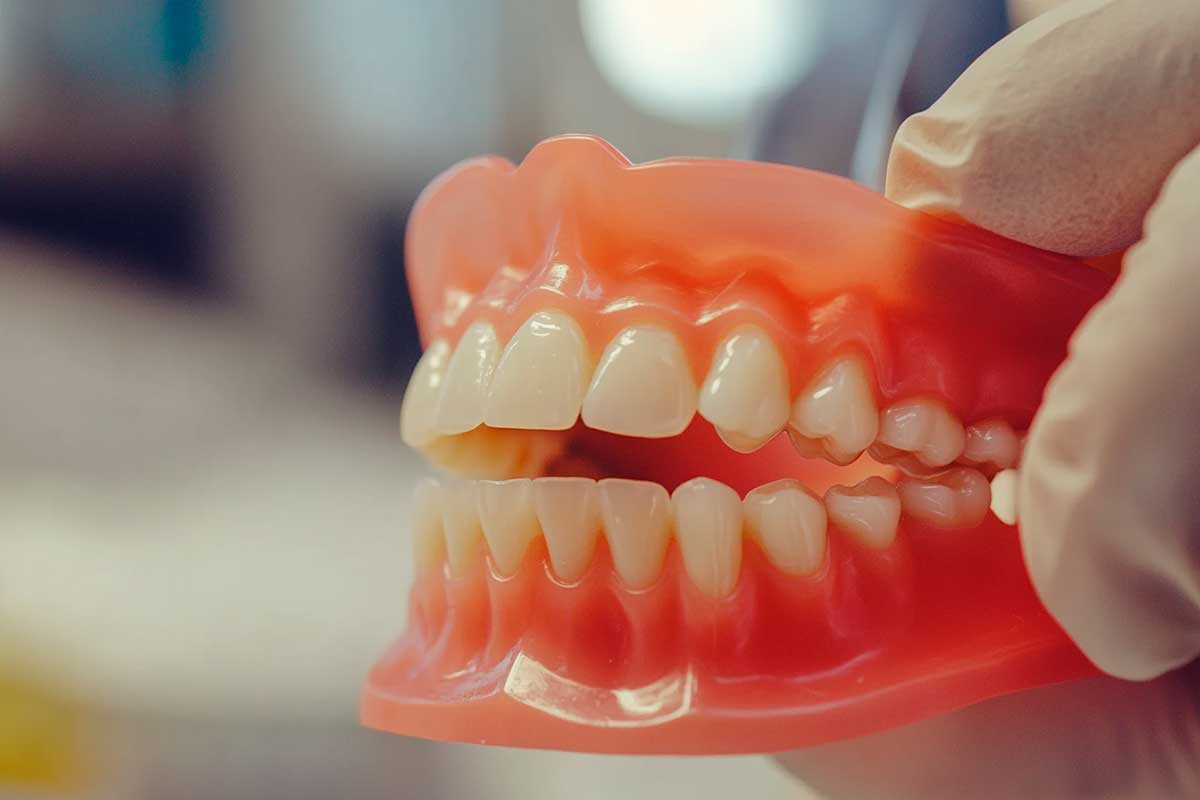At Clinic Consultation in Brampton / ON, we provide specialized dental prosthetic services for those looking to restore the function and aesthetics of their smile. Our highly qualified prosthodontists use advanced techniques to offer personalized solutions, including full dentures, partial dentures, crowns, bridges, and dental implants, ensuring both comfort and durability.
With individualized care, we carefully assess each patient's needs to deliver the best possible treatment. At Clinic Consultation in Brampton / ON, we combine cutting-edge technology with a compassionate approach.
If you need dental prosthetics, Clinic Consultation in Brampton / ON is ready to restore your confidence and oral functionality, offering a renewed and healthy smile.
Dental prosthetics are artificial replacements for missing teeth and surrounding tissues, designed to restore function, aesthetics, and oral health. These prosthetics can be used to replace one tooth, multiple teeth, or even a full arch of teeth, depending on the patient's needs. Dental prosthetics help improve chewing, speaking, and overall dental structure, as well as restore confidence in the appearance of a patient's smile.
Prosthetics are typically custom-made to fit the unique shape of the patient’s mouth, ensuring both comfort and functionality. They include a variety of devices, such as dentures, crowns, bridges, and dental implants, which are tailored to restore the appearance and function of natural teeth.
Types of Dental Prosthetics
Dentures
Dentures are removable prosthetics used to replace multiple missing teeth or a full arch. They come in two primary forms: complete dentures and partial dentures. Complete dentures are used when all teeth are missing, while partial dentures are used when some natural teeth remain. Both types are custom-made to fit comfortably in the patient’s mouth, providing a natural appearance.
Dentures help restore the ability to chew and speak properly, improving the patient’s quality of life. Modern dentures are made from high-quality materials that mimic the appearance of natural teeth and gums. While they are removable, dentures must be cleaned and cared for daily to maintain their function and appearance. Patients with complete dentures may also need periodic adjustments to ensure a proper fit as the shape of the gums and jaw changes over time.
Dental Implants
Dental implants are a permanent solution for missing teeth. This procedure involves surgically placing a titanium post into the jawbone, which acts as a replacement for the tooth root. Once the implant integrates with the bone, a crown or bridge is placed on top, mimicking the appearance and function of a natural tooth. Implants are an excellent option for those who want a long-lasting and stable tooth replacement.
Dental implants provide several benefits, including improved stability, durability, and the preservation of the jawbone structure. Unlike dentures, which can be removed, implants are permanent and function much like natural teeth. They can last a lifetime with proper care, and patients can enjoy a fully restored smile without the worry of dentures slipping or moving during daily activities.
Advantages of Dental Prosthetics
Dental prosthetics offer several benefits:
- Restored functionality: Prosthetics restore the ability to chew, speak, and eat comfortably. Patients with missing teeth often struggle with these activities, and prosthetics help bring back normal function.
- Improved appearance: Prosthetics provide a natural look, enhancing the aesthetics of a patient's smile and boosting confidence.
- Long-lasting solutions: Depending on the type of prosthetic, patients can enjoy long-lasting or even permanent replacements for missing teeth.
The time it takes to receive dental prosthetics varies depending on the type. Dentures can often be made in a few weeks, while dental implants require several months to complete, including time for healing and integration of the implant.
Prevention of Prosthetic Issues
Maintaining good oral hygiene is essential for extending the life of dental prosthetics:
- Daily cleaning: Regular cleaning of dentures or brushing dental implants helps prevent plaque buildup, which can lead to gum disease or infection around the prosthetic.
- Regular dental check-ups: Routine visits to the Dentist ensure that your prosthetic fits properly and functions well, preventing discomfort or damage.
- Proper storage: For removable prosthetics like dentures, it’s important to store them properly in a moist environment to maintain their shape.
Frequently Asked Questions (FAQ)
1. How long do dental prosthetics last?
The lifespan of dental prosthetics varies. Dentures typically last 5 to 10 years, while dental implants can last a lifetime with proper care. Regular check-ups and maintenance are key to extending their longevity.
2. Are dental prosthetics comfortable?
Yes, dental prosthetics are custom-made to fit comfortably in the mouth. However, it may take some time to adjust, particularly with dentures. Regular adjustments may be needed to ensure a proper fit over time.
3. Can I eat normally with dental prosthetics?
Yes, dental prosthetics restore the ability to eat normally, though some adjustments to diet may be necessary initially, especially with dentures. Dental implants offer the most natural function, allowing patients to enjoy a wide range of foods.
Dental Prosthetic Services at Clinic Consultation
At Clinic Consultation, we provide a wide range of dental prosthetics, including dentures, implants, and crowns. Our skilled team ensures a comfortable fit and natural look, helping you restore both function and aesthetics to your smile.
Book an appointment today at Clinic Consultation to learn more about our dental prosthetic services and start your journey to a healthier, complete smile.
